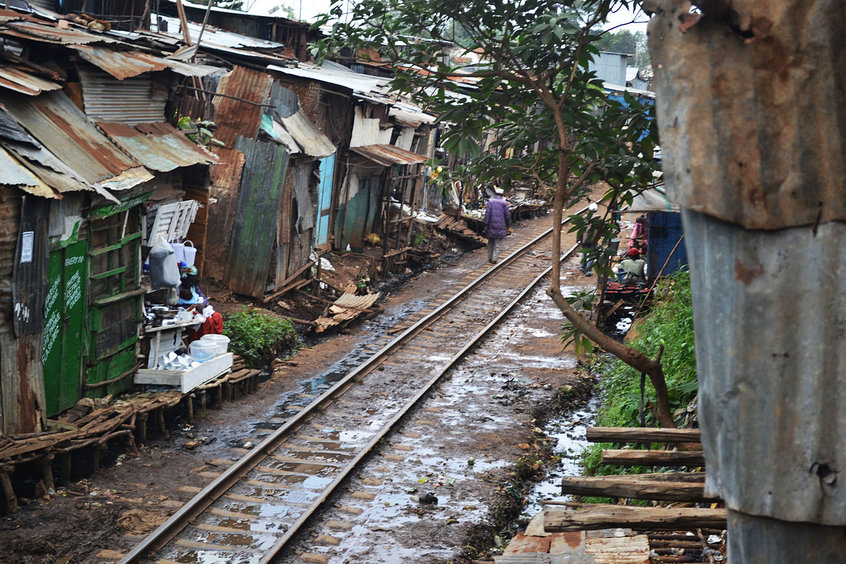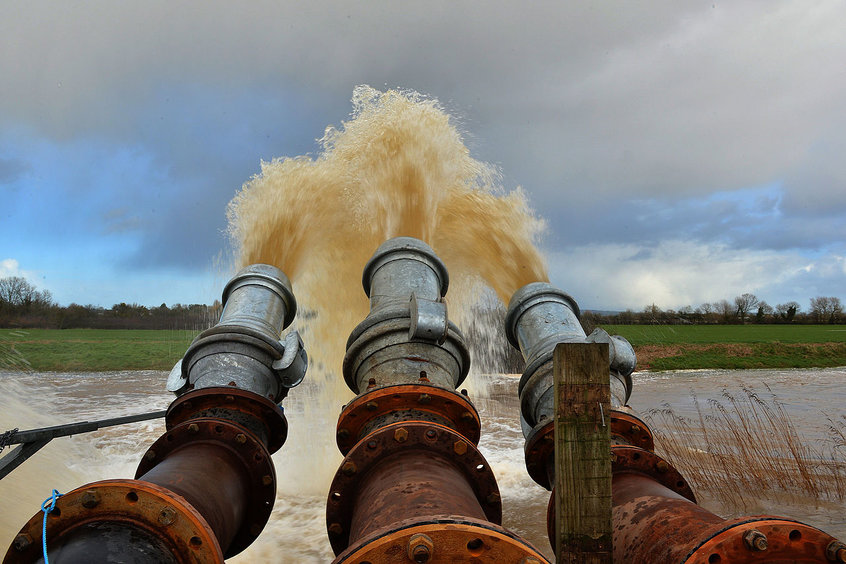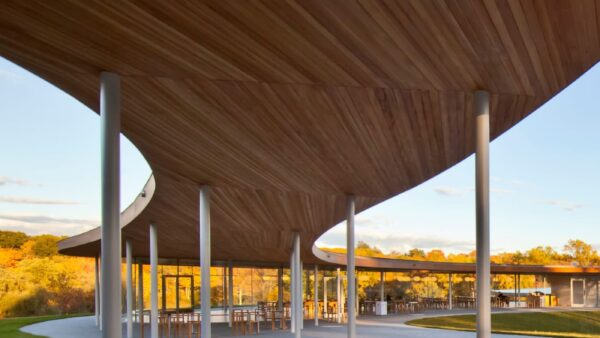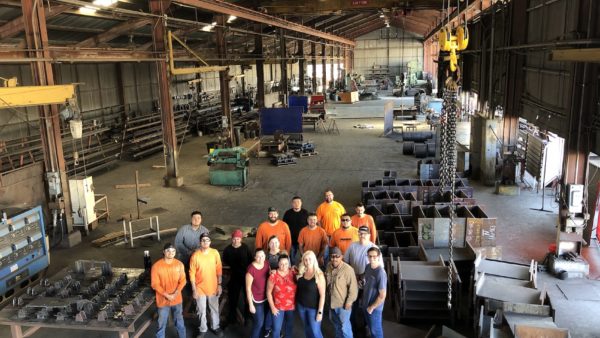Many people believe that science and technology hold the key to humanity’s biggest challenges, from energy scarcity and pollution to hunger and overcrowding.
It has even been suggested that wars apparently fuelled by ideological or political motives could have been sparked by underlying conditions that a rational application of science might have avoided.
A world run by engineers would be more planned, more strategic, more organised– Tim Chapman, Arup
Take the Syrian civil war, for instance. In a paper published last year in the Proceedings of the National Academy of Sciences, Colin P. Kelley and co-authors proposed that a record-breaking drought in northeastern Syria between 2007 and 2010 caused the sudden migration of 1.5 million poor farmers into cities, setting the scene for the widespread unrest that erupted into outright revolt in early 2011.
What if a new global order were to emerge in which the rational application of science was given reign to tackle the threats facing all life on earth? To put a finer point on it, what if, constrained by the Utilitarian principle of the greatest happiness for the greatest number, engineers ruled the world?
We asked some of the world’s leading engineering thinkers and practitioners to respond to the proposition, and this is what they said.
“Only respect for the facts can create a better future”
Tim Chapman, Leader of London Infrastructure Group, Arup
Great engineers are pragmatic dreamers, matter-of-fact, practical, with a vision of what a better world could look like. We are long term, systematic thinkers, capable of balancing the needs of the future against problems of the present.
All the major challenges facing our planet – climate change, energy security, food production and rapid urbanisation – demand this balance. Our politicians are often accused of short-term thinking, of prioritising the here and now at the expense of the tomorrow. And at the other end, our great thinkers are often criticised for being too focused on the future, detached from current reality.

Village women in Niger grow tomatoes, lettuce, cabbage and potatoes in a community garden set up with help from Mercy Corps. Plans are to expand with a drip irrigation system (Mercy Corps)
Engineers are able to bridge this gap. A world run by engineers would be more planned, more strategic, more organised. But there would still be sparks of brilliance – ‘right now’ solutions that make a change right now.
The right answer for our society must be to have more engineers at the top decision making tables. Only knowledge, understanding and a respect for the facts can create a better future for humanity. But engineers also need to change, too, if they are to sell their answers to a sceptical world. They need to be better story-tellers who bring society along with them, rather than trying to impose solutions.
“Engineering can also do damage”
Richard Darton, Emeritus Professor, Department of Engineering Science, University of Oxford; Former President of the Institution of Chemical Engineers and the European Federation of Chemical Engineering
Scientists, discovering new facts about the universe, have some claim to work remotely from worldly considerations, but this can never be said of engineers. The whole point of engineering is that it changes peoples’ lives deliberately. We make cars and motorways to provide mobility, pills to cure us when we are ill, mobile phones so we can chat at a distance, and so on.
The millions of products we use, and the infrastructure needed to keep supplying them (such as oil refineries, pharmaceutical manufacturing, telecommunication networks) are the result of vast engineering activity.

Colonial-era railway running through the Kibera slum in Nairobi, Kenya, considered the largest urban slum in Africa (Trocaire/Wikimedia Commons)
But engineering can also do damage. For example, cars produce pollutants that are medically harmful, and the carbon dioxide they emit causes global warming. Engineers work hard to reduce bad side-effects, but we have a duty to be open about the problems.
Our communities and our political leaders should know the risks and understand possible technical solutions in order to make well-informed decisions about the use and control of technology, because it is not our place, as engineers, to tell people how to live.
Throughout history power has often been taken by small groups who thought they knew what was good for everyone, and it always ended badly. The best people to make decisions about technology are those who enjoy the benefits and suffer the problems – you, me and our fellow citizens.
“The voice of reason and technical competence should be heard”
Prof Dr Uwe Krueger, Chief Executive Officer, Atkins
It has been said by a well-known member of the British royal family that “everything not invented by God is invented by an engineer”. It is a perfect summation of just how significant the work of the engineer really is.
It is not our place, as engineers, to tell people how to live– Richard Darton, Emeritus Professor, University of Oxford
If we examine their role in society, engineers are enablers and innovators, who creatively and seamlessly combine technology led solutions with the needs of people.
Should they rule the world? Perhaps not on their own but they should definitely be more self-confident and engaged alongside the scientists, philosophers and politicians, giving insightful technical advice and finding answers to the world’s biggest problems.
Making the voice of reason and technical competence better heard, helping bipartisan consensus to emerge in the most relevant questions for the future of our societies – this is what engineers should strive for.
And what a list of problems there is to address, as massive increases in population and a changing climate put more and more pressure on our cities and citizens.
Mega cities are on the rise and heavily populated centres such as New York and Shanghai need holistic coordination of physical infrastructure, strategies, systems and emergency services if they are to continue to thrive.

Floodwater is pumped into the River Parrett in Somerset, England, during severe flooding in 2013-14 (LA(Phot) Rhys O’Leary/MOD)
The vision to achieve these aims and to future-proof our cities against the threats of tomorrow lies with the world’s engineers. We must take our seat at the top table and help shape the collective values of community, culture and place in our world…without divine intervention.
“There is no time now for reports and studies”
Peter Head, Founder & Chief Executive Officer, Ecological Sequestration Trust; formerly head of global planning at Arup; cited by Time magazine in 2008 as one of 30 global eco-heroes
Governments, cities, financiers, communities and families are all acutely aware of growing uncertainties and risks. Lots of people are writing about the need for a change of direction, and that we may have left it rather late on climate change.
Gandhi said: “There is no point in running fast unless you are running in the right direction.” There is no time now for reports and studies. Governments have committed to the world to radical change by 2030 with the Global Goals, and we need to move now.
So the primary role for engineers and scientists in my view is to create the guidance compass for change and do it through systems and an integrated approach. The first thing we need is tools that enable projects and investments to deliver Global Goal outcomes – performance-based specifications and accountability for performance to improve human and ecological health over the project lifetime, including climate risks.
Every year $4 trillion will be invested in urban development globally to achieve this and all of it must follow this performance-based track if we are to reach a more resilient future.
Working with leading scientists and engineers from Imperial College we have created a prototype of an open-source software platform – resilience.io – to help this happen.
What do you think? Comments welcome.
Top image: Digging irrigation channels in Palmyra, Syria (Center for Climate and Security)
Comments
Comments are closed.











The saying goes:” there is nothing new under the sun! ” Our entire world progress is in many cases being held back by very evil exploiters trading in valuable patents and thus holding our very future to ransom by making progress only possible at an exorbitant price! To make matters worse politicians are very often pressured into serving the demands of special interests groups at a huge disadvantage to the basic interests of the whole of the nation they should be serving! So the No.1 anchor in government should be a highly competent Cost Engineer fully capable of accurately performing the essential task of financial planning and strict cost control!!! Most Countries fail economically due to the sad lack of such inbuilt vital expert Professional governance!!!
I believe that a good engineering oriented development can provide public welfare if it is structured on a foundation of human science.
Engineers are propellers of economy and his/her matrix thinking helps to overcome technical and non-technical challenges in civil society……
as engineers we must be humble : without the ideas and insights of (a.o.) human scientists we fail just as many average politicians do . We are part of many solutions but also part of many man-made disasters..
Engineers will be more Rational, Philosophical, Logical and Humble by Educational / Training.
Kanti Patel
In his book: ‘Utopia or Oblivion: the Prospects for Humanity’ (p. 1969) Buckminster Fuller wrote “It is technology which got humanity into this global environmental mess, and it is only by using new and radically better technology properly that humanity stands a chance of getting out of it.” Until politicians, policy makers,, and above all engineers – with the help of ecologists – understand the reality of Fuller’s statement and quickly apply cybernetic principles to the problem of how to survive on Earth, that chance Fuller wrote about half a century ago will soon have gone. Then the only prospect left for humanity will be certain oblivion. With the powerful support of today’s lethal and widespread combination of ignorance, apathy and vested interest, existential risk will have triumphed.
Engineers by very definition operate in specialist disciplines. It is a lack of joined up thinking that has got us into the problems we face today – Engineers are not systems thinkers, they may be systemic within their own disciplines, but they would be just as dangerous and tunnel visioned as the worst of the self interested politician when it came to making decisions for all of us. Engineering is male dominated – we don’t need more male dominated decision making thanks. The comment that engineers are more rational and logical reveals the truth that engineers are just as prone to self delusion as the rest of humanity in terms of how decisions are made – not how bits of kit are designed which is where the logic and rationality of engineers lives. I believe engineers are essential to our quality of life and to finding solutions to problems, but to put them in charge! Save me please.
It is an excellent article and is a timely one. Engineers should have roles in tackling world problems. When Engineers are called, they can assess and recommend different solutions to the given problems. Engineers’ way of thinking are aimed at this mentality.
In older times, the great civilizations were based on the achievement of Architects, Philosophers, Physicist, Chemist and Farmers. They are the basic pillars of decent life and development. This started to change after the Industrial Revolution which created the Engineering Science. Technologies have been developed in a thriving manner till mid 90’s when Coroporations targeted money objectives rather than innovative engineering objectives. This vision created many economic and environmental problems.
Engineering is defined as the use of applied sciences to serve people and society. Engineers are there to serve their communities and the world at large.